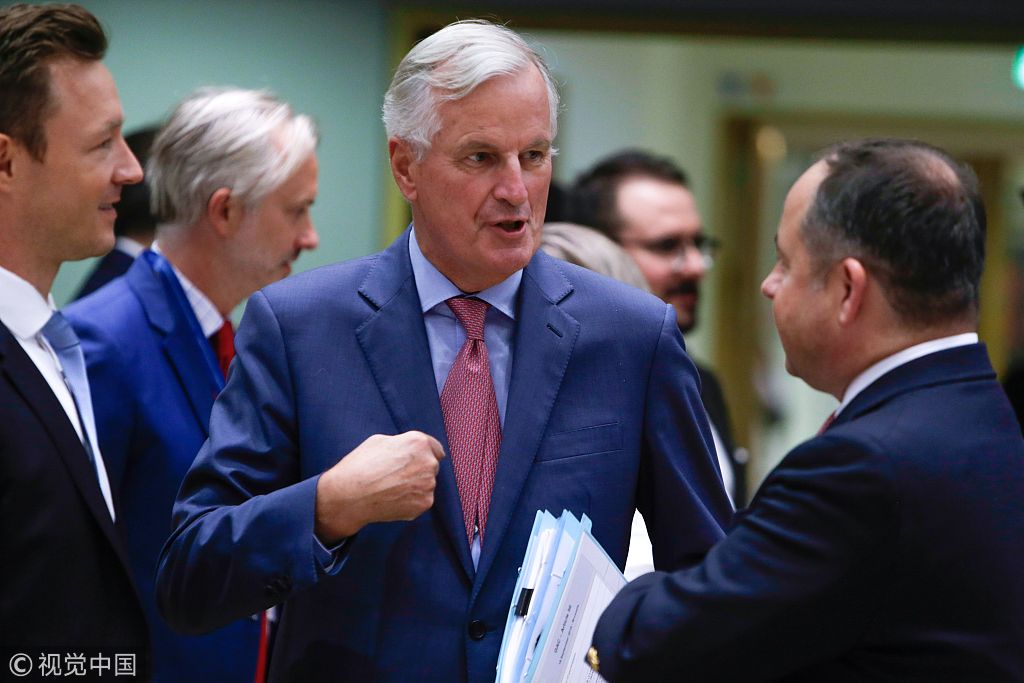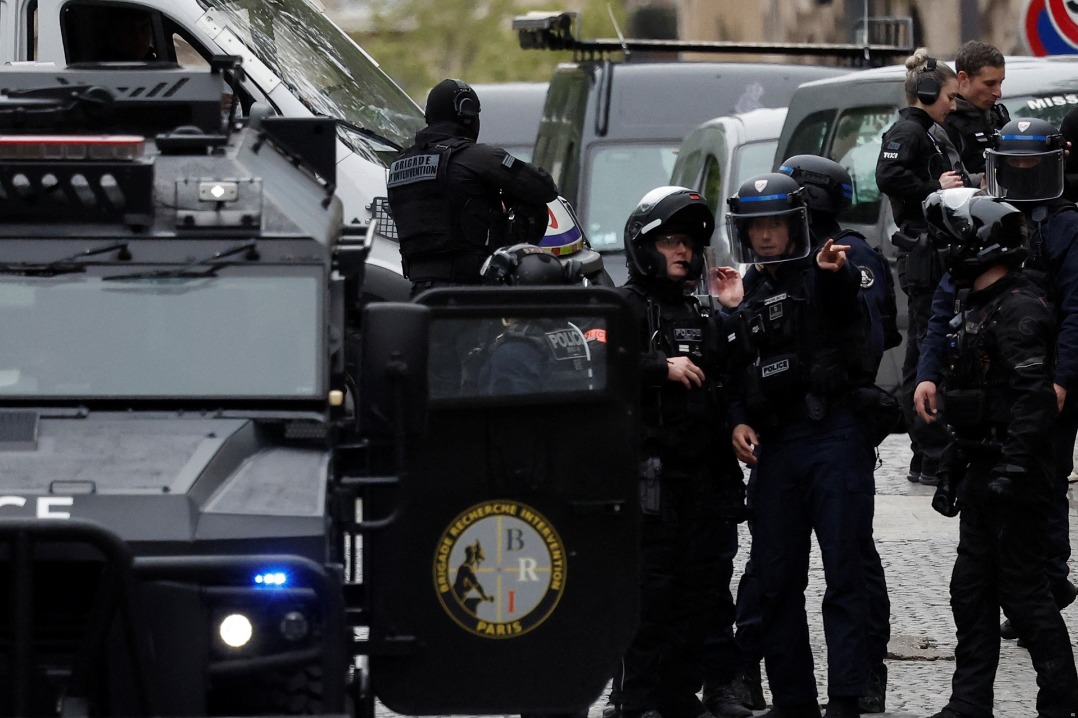EU offers Irish border olive branch ahead of summit


With the approach of the March 29 deadline on which the United Kingdom will leave the European Union, a major issue blocking an amicable divorce settlement-the nature of the post-Brexit Irish border-may be edging toward a resolution.
In a surprise move on Tuesday ahead of the latest EU summit, the bloc's chief negotiator, Michel Barnier, said Brussels may be "ready to improve" its bargaining position in relation to the 500-kilometer-long border between the Republic of Ireland and the UK.
"We are ready to improve this proposal," he said, noting talks were in the "home straight" despite there still being significant areas of disagreement.
"October is the key point in time," he said, noting that a November deal was possible. "It is the moment of truth."
Both the UK and the EU want to avoid a post-Brexit hard border but have struggled to find a way to monitor the flow of goods without cameras and guard posts.
The BBC reported on Wednesday that Barnier has shifted his tone in relation to his "backstop" proposal. The broadcaster said British Prime Minister Theresa May will also warn EU leaders not to demand the "unacceptable" from Britain on the issue. The EU had been suggesting a hard border could be avoided if Northern Ireland continued to function as if it was within the EU but, in an article in German newspaper Die Welt, May said such an arrangement would effectively divide the UK.
The Financial Times said Barnier's latest comments suggest he wants to reduce tension over the issue ahead of the summit in Salzburg on Wednesday.
It said Barnier believes most checks could take place away from border areas.
The issue is important because of the long-running "troubles" on the island of Ireland in which opposing terrorist groups have campaigned, with one side seeking a united Ireland free from British rule in the north and the other wanting Northern Ireland to remain part of the UK.
The conflict effectively ended after the 1998 Good Friday agreement ensured power-sharing and the removal of a large number of security checks, along with a soft border.
May wants "friction-free movement of goods" to continue post-Brexit, with no customs or regulatory checks.
Police chiefs in the UK, meanwhile, have warned that Britain could become a more dangerous place after it leaves the EU if a satisfactory deal is not reached that ensures continued security cooperation.
The Mail reported on Wednesday that Sara Thornton, chairman of the National Police Chiefs' Council, was saying a no-deal Brexit could mean Britain loses access to 40 Europe-wide crime-fighting mechanisms, something that she said would make it "harder to protect UK and EU citizens".



































